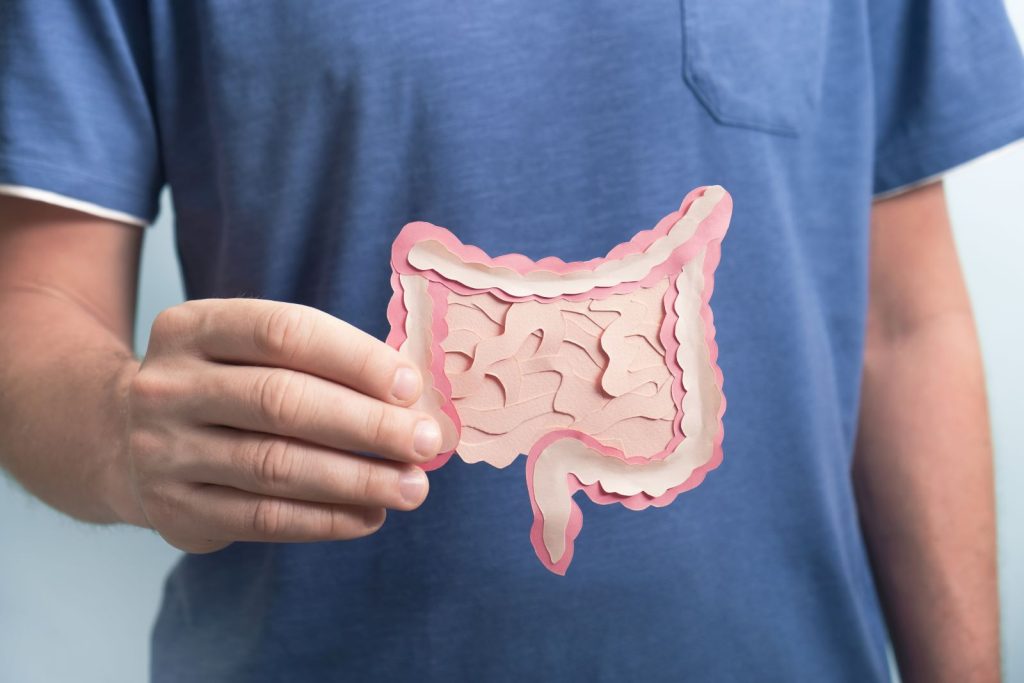Finding blood in your stools can be a concerning and unsettling experience. It’s a symptom that often leads to questions and uncertainty about its underlying cause. While not all cases of blood in stools are cause for alarm, it’s essential to recognize when it’s time to consult a gastroenterologist for a thorough evaluation.
In this article, we will explore the significance of blood in stools, potential causes, and when to seek expert medical advice from a gastroenterologist.
Understanding Blood in Stools
Blood in stools, also known as rectal bleeding or hematochezia, can manifest in various forms. It may appear as bright red blood in the toilet bowl, red streaks on toilet tissue, or as dark, tarry stools. The color and characteristics of the blood can provide clues about its source within the digestive tract.
Potential Causes of Blood in Stools
The causes of blood in stools can vary widely, ranging from minor, self-limiting issues to more serious medical conditions. Some of the potential causes include:
- Hemorrhoids: Swollen blood vessels in the rectum or anus, known as hemorrhoids, can cause rectal bleeding. Hemorrhoids are a common and usually benign condition.
- Anal Fissures: Small tears or cracks in the lining of the anus, called anal fissures, can lead to rectal bleeding, often accompanied by pain during bowel movements.
- Gastrointestinal Bleeding: Bleeding from the stomach or other parts of the gastrointestinal tract can result from ulcers, gastritis, or inflammatory bowel disease (IBD), such as Crohn’s disease or ulcerative colitis.
- Diverticular Disease: Diverticula are small pouches that can form in the colon. When these pouches become inflamed or infected, they can lead to rectal bleeding.
- Colorectal Polyps: Precancerous growths in the colon, known as polyps, can sometimes bleed. While not all polyps are cancerous, they should be removed and examined.
- Colorectal Cancer: Rectal bleeding can be an early sign of colorectal cancer. Timely diagnosis and treatment are critical in such cases.
- Gastrointestinal Infections: Infections, such as bacterial or parasitic infections, can cause gastrointestinal bleeding.
- Medications: Certain medications, such as nonsteroidal anti-inflammatory drugs (NSAIDs) or blood thinners, can increase the risk of gastrointestinal bleeding.
- Inflammatory Bowel Disease (IBD): IBD can cause inflammation and ulceration in the digestive tract, leading to rectal bleeding.
- Gastrointestinal Blood Vessel Abnormalities: Conditions like angiodysplasia or arteriovenous malformations in the gastrointestinal blood vessels can cause bleeding.
When to Consult a Gastroenterologist
While some instances of rectal bleeding may resolve on their own, it is crucial to consult a gastroenterologist in the following situations:
- Persistent or Recurrent Bleeding: If you experience blood in your stools that persists or recurs over several days, it is essential to seek medical attention. This could indicate an underlying condition that needs evaluation and treatment.
- Blood on the Toilet Tissue: Even if you notice just a small amount of blood when wiping, it’s advisable to consult a gastroenterologist. Blood on the toilet tissue can be an early sign of a gastrointestinal issue.
- Change in Stool Color: Dark, tarry stools can indicate bleeding from the upper gastrointestinal tract, which may be more serious. Any significant change in stool color should prompt a visit to a gastroenterologist.
- Other Symptoms: If you experience additional symptoms alongside rectal bleeding, such as abdominal pain, unexplained weight loss, or changes in bowel habits, it’s crucial to consult a specialist. These symptoms may suggest an underlying condition that requires investigation.
- Age and Risk Factors: Individuals over the age of 50 and those with a family history of colorectal cancer or a personal history of gastrointestinal conditions are at higher risk. Regular screening and consultation with a gastroenterologist may be advisable in such cases.
- Prior Medical Conditions: If you have a history of gastrointestinal conditions, such as IBD or diverticular disease, it’s essential to consult a gastroenterologist when you experience rectal bleeding.
Conclusion
Blood in stools is a symptom that should not be ignored. While it may have various causes, some of which are less concerning, it is essential to consult a gastroenterologist when you experience rectal bleeding, particularly in cases of persistent or recurrent bleeding, changes in stool color, or the presence of additional symptoms.
Early consultation and evaluation are vital for diagnosing and addressing any underlying conditions and ensuring the best possible outcomes for your gastrointestinal health. Consulting a gastroenterologist is a proactive step towards understanding the cause of the bleeding and receiving appropriate treatment and care.

